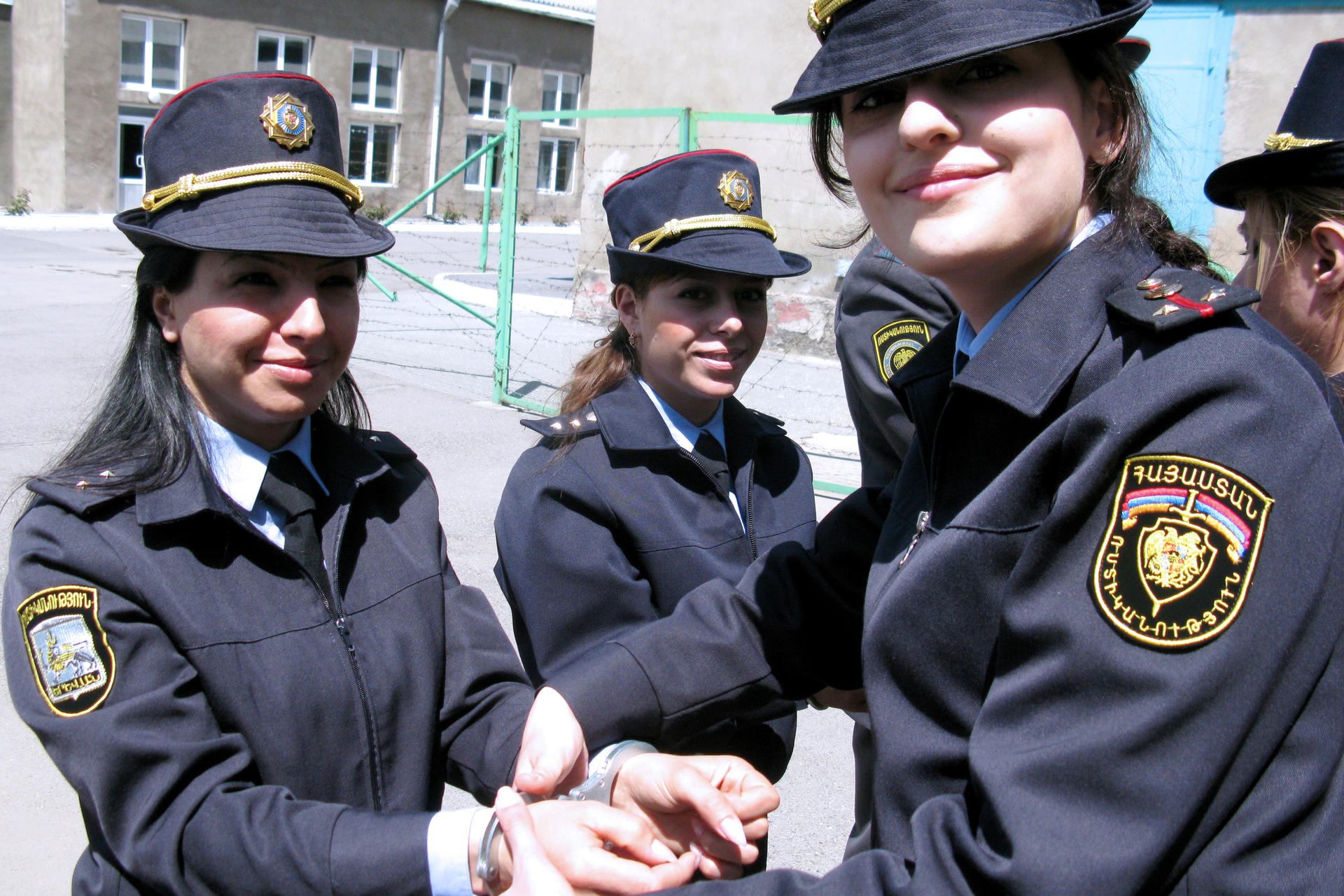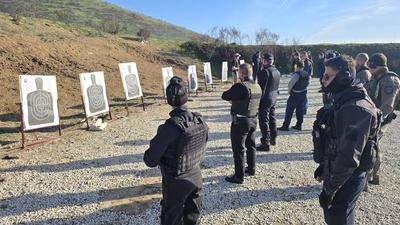-
Our work
-
Fields of work
- Arms control
- Border management
- Combating trafficking in human beings
- Conflict prevention and resolution
- Countering terrorism
- Cyber/ICT Security
- Democratization
- Economic activities
- Education
- Elections
- Environmental activities
- Gender equality
- Good governance
- Human rights
- Media freedom and development
- Migration
- National minority issues
- Policing
- Reform and co-operation in the security sector
- Roma and Sinti
- Rule of law
- Tolerance and non-discrimination
- Youth
- Field operations
- Projects
-
Meetings and conferences
- Summit meetings
- Review Conferences
- Ministerial Council meetings
- Plenary meetings of the Permanent Council
- Plenary Meetings of the Forum for Security Co-operation
- Security Review Conferences
- Annual Implementation Assessment Meetings
- Economic and Environmental Forum
- Economic and Environmental Dimension Implementation Meetings
- Human rights meetings
- Media conferences
- Cyber/ICT security conferences
- Conference of the Alliance against Trafficking in Persons
- Gender equality conferences
- Annual OSCE Mediterranean conferences
- Annual OSCE Asian conferences
- Partnerships
-
Fields of work
-
Countries
- All
-
Participating States
- Albania
- Andorra
- Armenia
- Austria
- Azerbaijan
- Belgium
- Belarus
- Bosnia and Herzegovina
- Bulgaria
- Canada
- Croatia
- Cyprus
- Czechia
- Denmark
- Estonia
- Finland
- France
- Georgia
- Germany
- Greece
- Holy See
- Hungary
- Iceland
- Ireland
- Italy
- Kazakhstan
- Kyrgyzstan
- Latvia
- Liechtenstein
- Lithuania
- Luxembourg
- Malta
- Moldova
- Monaco
- Mongolia
- Montenegro
- The Netherlands
- North Macedonia
- Norway
- Poland
- Portugal
- Romania
- Russian Federation
- San Marino
- Serbia
- Slovakia
- Slovenia
- Spain
- Sweden
- Switzerland – OSCE Chairpersonship 2026
- Tajikistan
- Türkiye
- Turkmenistan
- Ukraine
- United Kingdom
- United States of America
- Uzbekistan
- Asian Partners for Co-operation
- Mediterranean Partners for Co-operation
-
Structures and institutions
- Chairpersonship
-
Secretariat
- Secretary General
- Office of the Secretary General
- Conflict Prevention Centre
- Transnational Threats Department
- Office of the Special Representative and Co-ordinator for Combating Trafficking in Human Beings
- Office of the Co-ordinator of OSCE Economic and Environmental Activities
- Gender Issues Programme
- Opportunities for Youth
- Department of Human Resources
- Department of Management and Finance
- Office of Internal Oversight
- Documentation Centre in Prague
- Institutions
-
Field operations
- Presence in Albania
- Centre in Ashgabat
- Programme Office in Astana
- Programme Office in Bishkek
- Mission to Bosnia and Herzegovina
- Programme Office in Dushanbe
- Mission in Kosovo
- Mission to Moldova
- Mission to Montenegro
- Mission to Serbia
- Mission to Skopje
- Project Co-ordinator in Uzbekistan
- Closed field activities
- Parliamentary Assembly
- Court of Conciliation and Arbitration
- Organizational structure
- About us

Story
Patrolling a new beat: Reforms in Armenian police education
- Date:
- Source:
- OSCE Office in Yerevan (closed)
- Fields of work:
- Policing
Providing a service for the benefit of people rather than just representing the authorities is the core mission of contemporary democratic police work in Armenia. The shift required in style and culture is not an easy task, but the OSCE Office in Yerevan is putting a plan into action to help spread these ideas among new police officers, before they first report on duty.
A large-scale project on police education reform was initiated by the Armenian police, in partnership with the OSCE Office in Yerevan in 2010. As a result, the police education system was re-visited and restructured based on best international practices from across the OSCE area. Creating new educational programs for police trainees gives the best chance for democratic reforms to become entrenched.
Reforming at the roots
This radical overhaul of the police education system led to the introduction of the new three-tier Educational Complex, where the lowest tier – the Police Training Centre – will provide six-month basic training course; the intermediate tier – the Police College – provides a two-year course for the middle-group police officers; and the top tier – the Police Academy – provides both Bachelors and Masters degrees.
A greater focus is now placed on practical work to complement the classroom-based learning. After graduation of the Police College, new police officers must now work for one year after which, depending on performance, they can apply for higher level education at the Police Academy.
An innovative admissions procedure for the newly established education system has also been developed where a new testing system was instituted.
Police Colonel Armen Ghukasyan, First Deputy Head of the Police Education Complex, who chaired the admissions panel, shared his impressions of the reform process.
“Serious changes are evident, ensuring more transparency, objectivity and decreasing corruption risks in the whole admissions process. The new format of the admissions committee is a vivid example,” he said.
Of the nine members of the Committee only three are from the Police – previously the committee was solely composed of Police representatives. The rest are nominees from the OSCE Office, the Ministry of Education, the Civil Service and civil society.
“I believe education reform is essential in having a professional police service. Objective examinations and the new admission process are key factors for the success of the process. If a person is admitted honestly, she or he will work honestly in the system”, Col Ghukasyan added.
Patrolling a new beat
The new police education system in Armenia came into force only in fall 2011 and it will be several years before its success can be properly judged. In the meantime, the reforms will be monitored by the Police task force in close co-operation with the OSCE Office in Yerevan.
“Changing the education system is a challenging and long-term process. One can not expect immediate results. Much will depend now on how well the reforms will be applied in future,” said Carel Hofstra, Deputy Head of the OSCE Office in Yerevan.
Police education reform is part of a larger police assistance programme run by the OSCE Office in Yerevan.
OSCE Impact
Discover more stories about how the OSCE improves lives.

